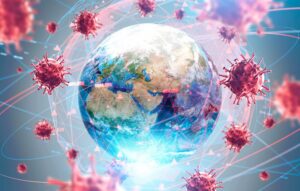Episode Summary:
This episode follows two Kidney Cancer expert Urologists in understanding Kidney tumors from diagnosis to treatment options.
Guests:
John L. Gore, M.D. Professor of Urology, Surgery, Health Services Researcher, University of Washington. Urologist, surgeon, clinician, researcher, educator, and expert in clinical care guidelines and outcomes. Dr. Gore is the PI of a large pragmatic trial in bladder cancer and a quality of care expert.
He previously served as the American Urological Association (AUA) representative to the National Quality Forum, which endorses national healthcare performance measures. He has been on guidelines panels for the National Comprehensive Cancer Network (NCCN) for kidney cancer and the AUA for bladder cancer.
Brian Shuch, M.D., is the Director of the Kidney Cancer Program and the Alvin & Carrie Meinhardt Endowed Chair in Kidney Cancer Research. He completed his urology training at UCLA and a Urologic Oncology Fellowship at the National Cancer Institute. He is an accomplished surgeon (open/laparoscopic/robotic surgery and percutaneous ablations) and clinical/translational researcher.
He serves in leadership positions within various kidney cancer research organizations such as SWOG and the Society of Urologic Oncology. He is recognized as an expert in the genetics of kidney cancer. He runs a translational research program with over 140 peers reviewed publications, including primary research published in prestigious journals such as Nature, Nature Genetics, Proceedings of the National Academy of Sciences, Journal of Clinical Oncology, and Clinical Cancer Research. He is one of the few clinicians to bring bench science to the bedside in an upcoming therapeutic clinical trial for metastatic kidney cancer.
During This Episode, We Discuss:
The types of Kidney Cancer
Non-cancerous kidney cysts (benign) versus cancerous kidney cysts
Solid kidney tumors, benign and malignant
Diagnosis of kidney cancers: Imaging and Biopsy
Risk factors for kidney cancers
Genomics of kidney cancer
Treatment of kidney cancer: Localized and Metastatic
Quotes (Tweetables):
Back in the olden days, we used to talk about the triad of three symptoms people associated with kidney cancer. Those three symptoms were hematuria or blood in the urine, palpable mass, and flank pain. Realistically in 2023, this triad happens less than 1% of the time. What has changed is that there is a much higher frequency of use of imaging to diagnose problems in our bodies. Kidney cancer is one of the fastest-growing cancer types in incidence because of incidental detection.
Dr. Gore
Regarding tumor size, it all depends on the scenario. The larger the lesion, the more concerning it is for cancer, but even a 1 cm tumor can have some aggressive elements. There is no absolute size where you say a tumor below this threshold cannot be cancer.
Dr. Shuch
Most kidney cancers are what we would call sporadic in that it occurs in the absence of known risk factors. The two biggest risk factors that are more behavioral are smoking and obesity.
Dr. Gore
Recommended Resources:
KCA: Kidney Cancer Association
Episode Transcript:
Coming soon!



